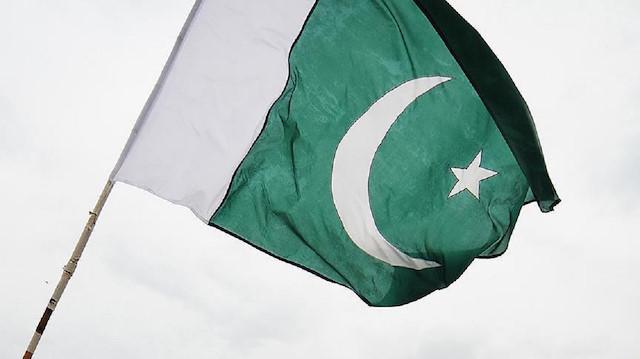
Riyadh announces $6B bailout package for Pakistan, including oil worth $3B on credit for 3 years
The injection of a $6-billion bailout package from Saudi Arabia has blown away the possibility of an imminent default by cash-strapped Pakistan, however, the development is not more than a reprieve for the country’s ailing economy, economists say.
The package, which includes $3 billion for balance of payment support, was announced after a meeting between Saudi King Salman bin Abdul Aziz and Pakistan’s Prime Minister Imran Khan at the Future Investment Initiative Conference in Riyadh on Tuesday.
Riyadh has also agreed to provide one year deferred payment facility for import of up to $3 billion worth of oil.
Grappling with a colossal $18 billion current account deficit, Pakistan has already sought the assistance of the International Monetary Fund (IMF) to deal with the exacerbating balance of payment issue. An IMF mission is scheduled to visit Islamabad next month to discuss the terms and the size of the loan.
“This [package] is a temporary relief and will only provide a comfort zone to the government to deal with the imminent economic challenges, mainly the balance of payment issue,” Shahid Hassan Siddiqui, a Karachi-based economist told Anadolu Agency.
The bailout package, he said, would help Pakistan improve its fast depreciating foreign reserves and reduce the trade deficit.
It would also improve the receding price of local currency and the stock exchange.
But, he warned, the temporary relief would only be beneficial if wide-ranging structural reforms were introduced to bolster the tottering economy, mainly focusing on external factors -- foreign reserves and current account deficit.
Annual remittances to the tune of $20 billion from overseas Pakistanis are the major source of the country’s foreign reserves, which currently stands at $16 billion.
“If the structural reforms are not introduced then I am afraid the economy will resume to reel from a similar crisis that we are facing after some months,” he said.
Muhammed Sohail, another Karachi-based economist, shares a similar view dubbing the Saudi package as a “breathing space” for the nascent government of first-time premier Khan, who has been under immense pressure for the country’s deteriorating economy.
“Pakistan’s current net external financing gap is between $10-12 billion. We can bridge half the gap with the help of this bailout package, which will give an opportunity to the government to put the economy on the right track in the next six to 12 months,” Sohail said.
Islamabad’s current external debt stands at nearly $100 billion -- the bulk of it borrowed from the World Bank, IMF, Asian Development Bank, Islamic Development Bank, the United States, China, France and other countries.
The South Asian nuclear state has conceded a loss of $100 billion since 2002 after it joined the U.S.-led war against terrorism.
Analysts view rising imports as a major threat to the country’s $300 billion economy.
Currently, Islamabad’s yearly imports stand around $60 billion compared to its exports of merely $24 billion.
“We have to introduce a crash program aimed at reducing our imports with a target of a $10-billion reduction in the current import bill. Simultaneously, we have to bridge the widening gap between imports and exports to sustain the improvement we expect to attain due to the bailout package,” Siddiqui said.
Despite receiving the Saudi package, he said, Islamabad will have to go to the IMF for multiple reasons.
“Saudi loan is not an alternative to the IMF program. Not only because we need more money but we need IMF’s endorsement of our economic policies to get loans from the World Bank, Asian Development Bank and other donor agencies,” he added.
Sohail said: “Going to the IMF is also essential because it will bring a financial discipline in the country’s economy apart from its endorsement for borrowing loans from other lending agencies.”
Pakistan is also likely to get comparatively smaller loans from its largest economic and defense partner China and ally the United Arab Emirates in the coming months.
Siddiqui foresees a negative impact on the economy in case of an IMF loan, particularly in the form of price-hike and inflation.
“We have to get rid of the IMF program as soon as possible because its tough conditions will surge the prices of essential commodities,” he said.
Sohail, however, disagrees with Siddiqui saying the government has already taken “tough measures” by increasing the prices of gas, electricity and other commodities.
“There will be no major impact on prices because of the IMF program. In fact, the IMF’s condition will be lenient after the Saudi package as we are not seeking a bigger package now,” he said.




